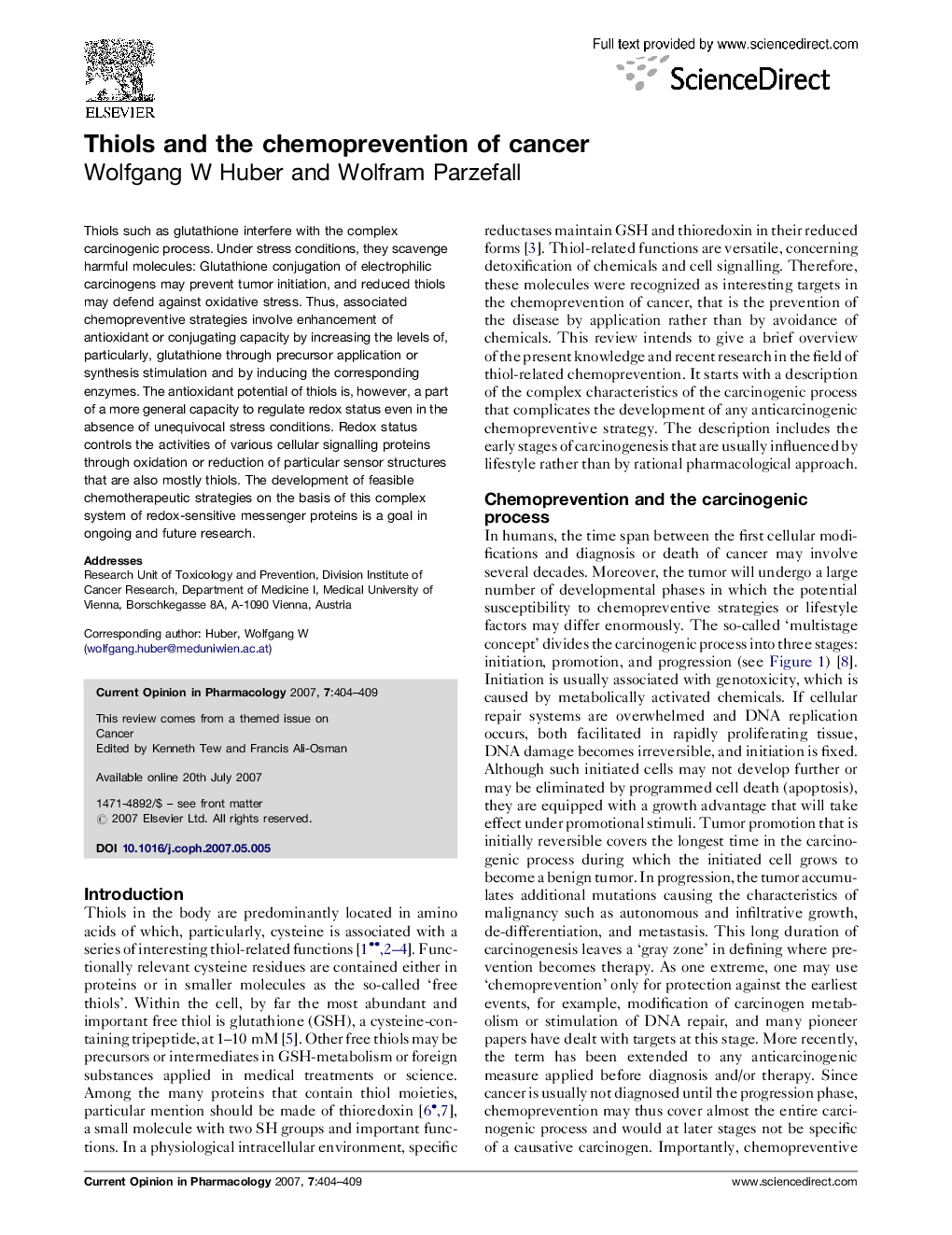| Article ID | Journal | Published Year | Pages | File Type |
|---|---|---|---|---|
| 5826603 | Current Opinion in Pharmacology | 2007 | 6 Pages |
Abstract
Thiols such as glutathione interfere with the complex carcinogenic process. Under stress conditions, they scavenge harmful molecules: Glutathione conjugation of electrophilic carcinogens may prevent tumor initiation, and reduced thiols may defend against oxidative stress. Thus, associated chemopreventive strategies involve enhancement of antioxidant or conjugating capacity by increasing the levels of, particularly, glutathione through precursor application or synthesis stimulation and by inducing the corresponding enzymes. The antioxidant potential of thiols is, however, a part of a more general capacity to regulate redox status even in the absence of unequivocal stress conditions. Redox status controls the activities of various cellular signalling proteins through oxidation or reduction of particular sensor structures that are also mostly thiols. The development of feasible chemotherapeutic strategies on the basis of this complex system of redox-sensitive messenger proteins is a goal in ongoing and future research.
Related Topics
Life Sciences
Neuroscience
Cellular and Molecular Neuroscience
Authors
Wolfgang W Huber, Wolfram Parzefall,
